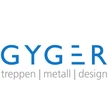Cryobugs Lausanne – Innovative, Eco-Friendly and High-Performance DisinfectionCryobugs in Lausanne is the most innovative disinfection company in Switzerland, offering high-quality cleaning and disinfection services for private clients and businesses across the cantons of Vaud , Geneva , Neuchâtel , Valais , Jura , Fribourg and Bern . Our unique approach uses freezing technology , dry steam cleaning and cryogenic treatment to eliminate insects, pathogens and contaminants without chemical products . Advanced disinfection using freezing technology At Cryobugs, we rely on the power of freezing to remove insects , mites , bed bugs , bacteria , viruses , fungi , mold and other harmful microorganisms . Our chemical-free disinfection solutions ensure a safe , eco-friendly and high-efficiency treatment suitable for all environments. High-performance dry steam cleaning Our dry steam cleaning technology effectively removes stains , grease , dirt , organic residues and embedded contaminants in: • apartments • houses • professional kitchens • commercial premises • laboratories • offices • industrial spaces This method delivers a deep sanitation process , ideal for places requiring a high level of hygiene . Cryogenic treatment for furniture and clothing Cryobugs also offers freezing and cryogenic treatment for furniture , textiles , clothing and personal items . This technique eliminates parasites , dust mites , bed bugs , mites , mold and spores without damaging materials. Available 7 days a week Cryobugs is available 7 days a week , from 7:00 AM to 7:00 PM , for urgent interventions , preventive disinfection , pest removal and hygiene treatments . We guarantee a service that is: • fast • professional • 100% ecological • chemical-free • effective on all surfaces Contact Cryobugs Lausanne For more information about our disinfection services , to request a quote , or to schedule a visit to your home or business , contact Cryobugs today. We help you maintain a clean , safe , sanitized and pest-free environment .



















